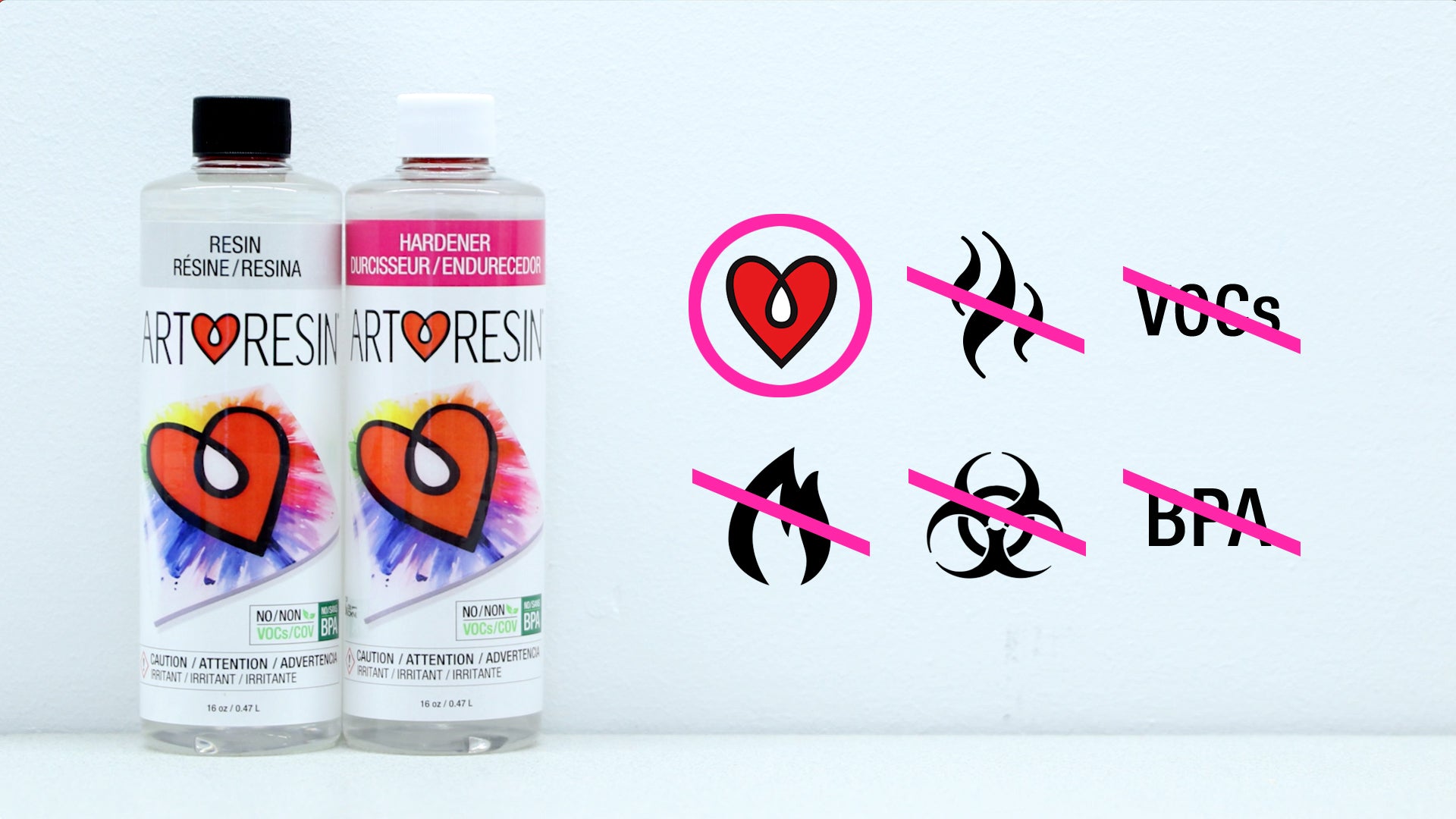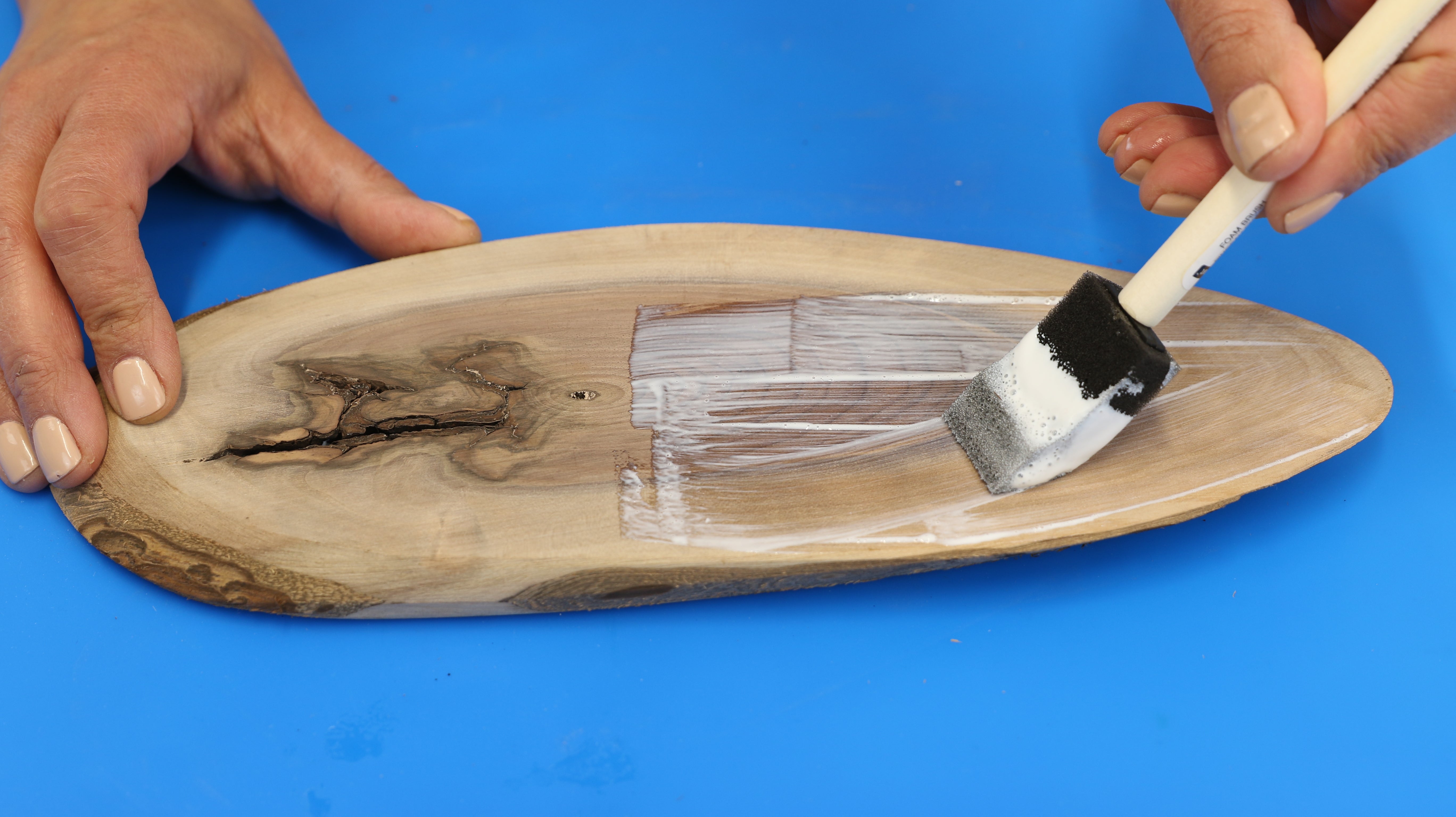Top 5 Most Asked Resin Questions
Top 5 Most Asked Resin Questions:
1) How can I prevent bubbles in epoxy resin?
Bubbles are the number 1 customer service question here at ArtResin! Bubbles are a nuisance, but here are the best practices to prevent bubbles from happening in the first place:
- Work in warm temperatures or give the resin a warm water bath.
- Don't pour resin layers that are too thick.
- Seal pieces that may release air into the resin.
- Use a torch to remove bubbles.
2) Is ArtResin really safe?
Yes, ArtResin is the safest epoxy resin on the market. In fact, safety is the reason we created ArtResin almost a decade ago: we wanted a non-toxic epoxy resin that we (and other artists) could use with confidence. These are the properties we prioritized:
• An epoxy resin safe for use at home or in the studio
• No solvent ingredients, no BPA, no harmful fumes or VOCs released
• A non-flammable and non-hazardous formula
• Food safe
3) Why did my epoxy hardener turn yellow?
You may notice that, as it gets older, your hardener changes from clear to yellow in the bottle. But you might be wondering why this happened when ArtResin contains light stabilizers that protect against yellowing. Most importantly - can you still use yellowed hardener or do you have to throw it out?
First, the yellowing you see in the hardener bottle as it ages is from oxidization - which is not the same as yellowing from UV light exposure. Next, the good news is yes, you can still use it - yellowed hardener will cure as normal. To learn more about how to use yellowed hardener and why it turned yellow in the first place, check out our blog.
4) Do I need to seal my artwork before I apply resin?
The idea of pouring resin over your artwork can be intimidating, and you may wonder if you need a sealant to protect it. In most cases, no - you don't need to seal first, but there are a few situations where applying a clear sealant before you resin is recommended.
Of course, the best tip is to always run some sample tests first before resining your final piece.
ArtResin's cure time is 24 hours until it's dry to the touch and 72 hours for a full cure. You may find, however, that your resin bends when you've removed it from a mold. Bendy resin can happen for a few reasons:
• the resin hasn't finished curing yet
• the resin was poured in a thin layer with no backing
• the resin and hardener were inaccurately measured and/or undermixed
• too much colorant was added to the resin
















































































